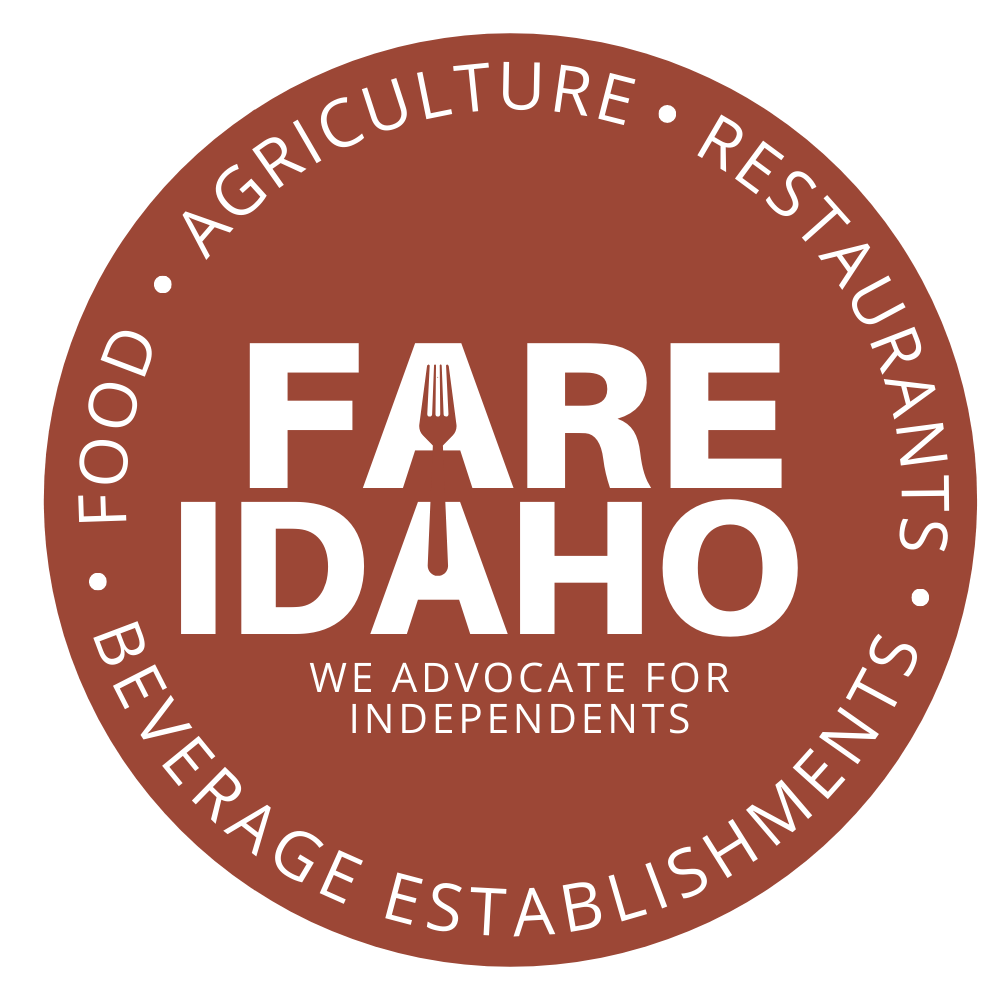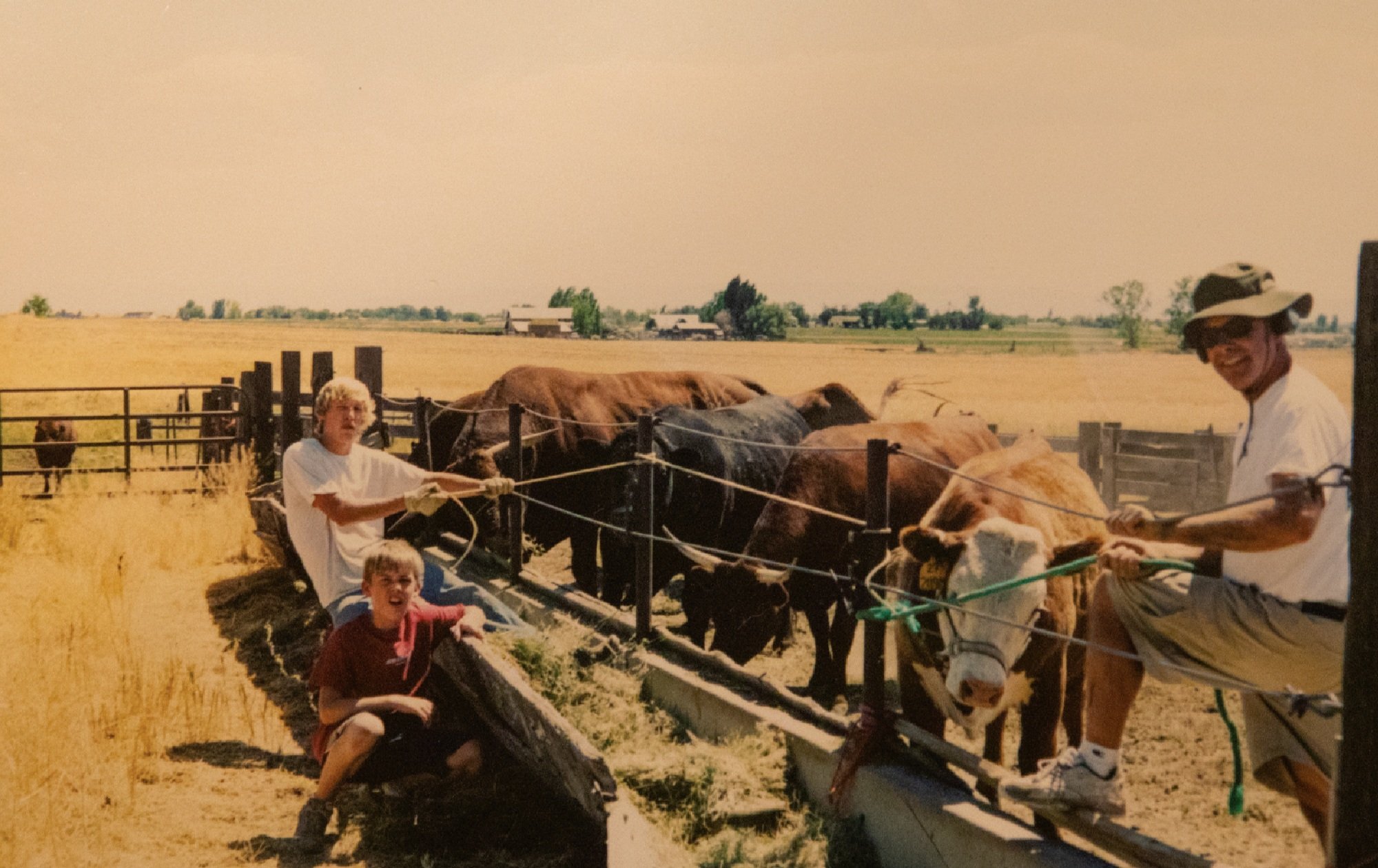How Can Community Involvement Affect Your Business? For Purple Sage Farms, It Helped Save Them
Photo courtesy of Arlie Sommer
By Ash Golangco
When local herb and greens specialty grower Purple Sage Farms had three of their twelve greenhouses collapse in 2017, they never could’ve predicted that the community outreach it’d spark – but the help was well-deserved. Purple Sage Farms’ community involvement has been a huge part of their success story.
Tim Sommer is the owner of Purple Sage Farms, but his son Michael Sommer (also known as Mike) leads and/or volunteers for many of the farm’s community involvement initiatives. He grew up on Purple Sage Farms in Middleton, Idaho, and never took on summer jobs because, in the summer, he worked on the farm. In 2005, he left for Missoula College in Montana, and graduated in 2009 with a B.A. Biology degree, specializing in botany.
Photo courtesy of Arlie Sommer
When he came back home, he finally became part of the farm’s management and decided to experiment with kombucha. Today, herbal kombucha is more commonly found, but, in 2011, brewing kombucha with basil, mint, or bronze fennel was unheard of. Also, most kombuchas are herbally infused rather than brewed alongside the product’s original fermentation process, as Mike’s kombucha did. His goal was to bring together the unique, flavorful varieties that grew on Purple Sage Farms. Plus, while brewed inside the farm’s commercial-grade kitchen, it also allowed the farm to make money during the winter.
“That’s when I started going to farmers markets,” Mike shared in a phone interview. “[It was] a way to talk to people. I had to do that before I could get into stores.” By 2013, the farmers market split. In favor of creating a farmer-centric agricultural farmers market, Mike became a founding board member of the Boise Farmers Market. He was a board member for 7 years, and president for 2 years, all on volunteer time. During that time, their production of kombucha was put on pause, but their involvement continued.
As it turned out, being involved in the farmers market wasn’t just about a need to get through winter – it was also about connecting with customers in a way they hadn’t before. “Not a lot of people know how to use [our specialty herbs],” Mike explained. “The market gives you face-to-face time with customers, and tells them how to use herbs and all different herbs out there, not just parsley and cilantro.”
Even during the pandemic, the Drive-Thru market and customer enthusiasm played an important role in keeping the farm afloat. But Mike and the team certainly missed seeing people’s faces. “Because we are the people doing all the work and growing the crops, it gives us a little [extra] motivation to meet the people eating the crops we grow. You see the smile on people’s faces, and that inspires you to bring it in again next week into the market.”
Photo courtesy of Arlie Sommer
Even though the farm – like many other small farms – had financial interests in keeping the farmers market alive, it was really the farm’s connection with customers that kept both the growers and the buyers (including local restaurants and chefs) coming back. “It’s been an important part of our small scale business – that direct connection to customers.”
The Boise Farmers Market is hardly the farm’s only volunteer involvement either. Purple Sage Farms is also involved in other groups like the NCAP (Northwest Center for Alternatives for Pesticides) and the Organic Growers Association – after all, in 1989, Tim Sommer helped lobby and start the organic program in Idaho.
In 2017, after the unusually extreme winter conditions collapsed five of their twelve greenhouses, it was clear the community didn’t want Purple Sage Farms to go anywhere. Neighbors came to clear the wreckage, and volunteers for the Boise Farmers Market helped fundraise for the repairs. They even went the extra mile and transplanted 2,500 seedlings to help make up for lost time in the first year. Local restaurants fed the farm’s work crews who worked through spring showers, cold, even snow storms to help the farm recover before the growing season would begin.
We asked Mike what he’d recommend for other farms and businesses that are considering increasing their involvement in the local community for 2022 – Mike says, first and foremost, he doesn’t think badly of people who are busy just trying to keep their head above water. “I know there’s lots of farms out there that struggle. It’s a lot of work just to farm, let alone have a few hours a week to volunteer. But if you can, it’s worth it in the long run. All local organizations need help, not just [within] farming.” You might be surprised by the difference you can make, he says. “I encourage anyone to help make decisions or at least volunteer within these organizations. It’s important for the community.”
Thank you, Purple Sage Farms, for allowing us to showcase your story, from your origins to your involvement in the community! We value your sage advice (get it?), and we look forward to the possible return of your delicious kombucha brews in the near future!



